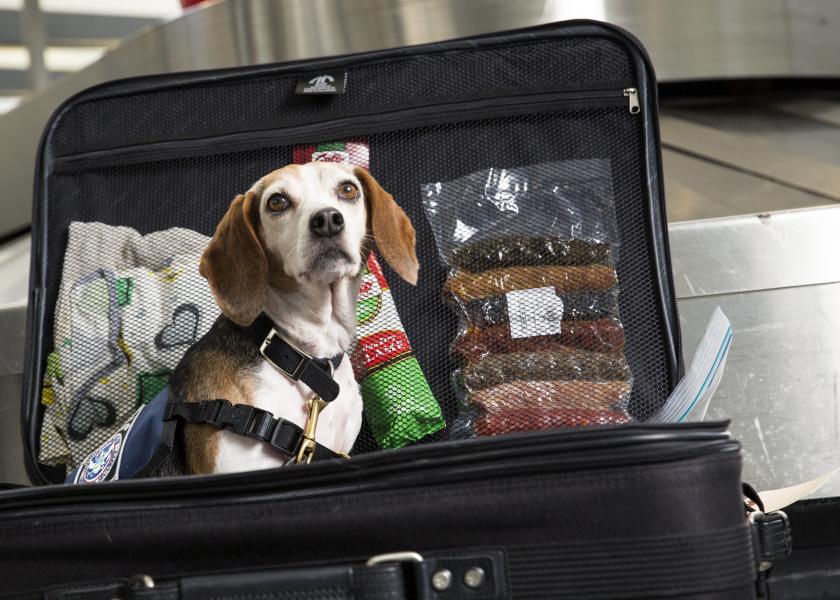The ‘Beagle Brigade’ Receives Industry-Wide Support in Protection of U.S. Agriculture

Today, over 116 agricultural canine teams provide screening at border crossings, airports, cruise terminals, cargo warehouses and mail facilities, according to the U.S. Bureau of Customs and Border Protection (CBP).
To protect the U.S. agriculture industry, natural resources and food supply, canines are used at U.S. ports of entry to detect and prevent foreign animal diseases, such as foot and mouth disease and African swine fever, as well as invasive species, plant diseases and pests from entering the U.S.
Industry groups, including the National Cattlemen’s Beef Association and the National Pork Producers Council, have submitted a letter to U.S. Congress leaders in favor of passing the Beagle Brigade Act of 2022 (S. 3678/H.R. 8432), congressionally authorizing and funding the National Detector Dog Training Center.
The Center in Newnan, Ga., is the primary training facility for the so-called “Beagle Brigade,” where canines and the Agriculture Canine Teams of the CBP handlers are trained to sniff out contraband fruits, vegetables and meat products in international passenger baggage, mailed packages and vehicles entering the U.S.
“Healthy animals ensure consumers have safe food and allow American producers, their communities and the U.S. economy to thrive. That is why NPPC joined over 50 organizations spanning the entire agriculture sector in support of the Beagle Brigade Act of 2022,” says Terry Wolters, NPPC president and owner of Stoney Creek Farms in Pipestone, Minn.
See the full letter and list of supporting groups here.
Canines have been successful at several border detections in 2022, including:
• 230 pounds of prohibited pork bologna seized at Bridge of the Americas and Santa Teresa border crossings
• 120 pounds of prohibited fresh pork and poultry meat at the Laredo Port of Entry
CBP seizes more than 4,600 plants, meat and animal byproducts per day on average, NPPC reported in its Capital Update.







